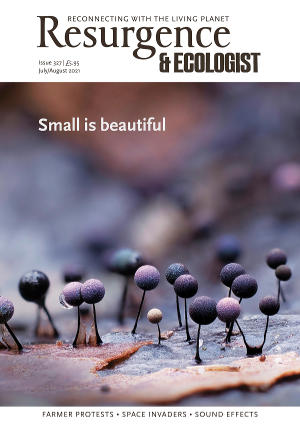It’s a mark of how far issues around land – and who owns it – have moved from the fringes to the mainstream in recent years that a writer with the popularity of Simon Winchester has chosen to tackle them. Land is a magisterial survey of land ownership over the broadest of geographies and covering a huge sweep of history, from the English gentry descended from conquering Norman barons to the colonial settlers who fought and tricked the Maori for control of New Zealand.
Winchester begins with the story of a modest patch of land in the US that he now owns, tracing its geology and history and the legal transaction that led to his becoming a landowner. Crucially, he explains how land ownership is in fact a “bundle of rights”, bestowing on the landowner not just possession and control, but also a right to exclude others (the law of trespass), as well as a right to develop and even destroy that land.
But Land is less a book about the philosophy of land ownership – a subject that, as Winchester acknowledges, was covered almost definitively by the late Andro Linklater in his 2013 book Owning the Earth – and more about cartography, colonialism and conquest. “Land’s place”, he points out, “is essentially fixed, and that fixity needs to be established … and demarcated.”
Winchester explores the little-known geographers and map-makers who first worked out the size of the Earth, and whose cartographic endeavours bolstered the claims of European empires to extend their grasp over the surface of the world. He traverses the territorial borders that colonialists drew, often with far more regard for geometric neatness than for political reality – causing or exacerbating conflicts between peoples, such as erupted after partition at the end of the British empire in India.
Land goes on to explore the expropriation of England by William the Conqueror’s barons, the draining of the Zuider Zee in the Netherlands to create fertile new acres, and the plundering of Native American lands by white settlers. It’s particularly insightful on the European conquest of the ‘New World’: as (the US-based) Winchester describes it, “a lust for land was from now on part of the quintessential allure of America.” He later lists some of the world’s largest landowners, many of them US billionaires, including Jeff Bezos, CNN founder Ted Turner, and the God-bothering, frack-happy Wilks brothers.
There are times when the sheer breadth of Winchester’s scope – leaping, for instance, from the Iron Curtain back to the Bronze Age in the space of a single page – feels a little breathless, missing out details. He incorrectly states that the Countryside and Rights of Way Act “opened up much of [England and Wales] to more or less the same kind of everyman’s right as is recognised in Scandinavia”: in fact, we have a right to roam over just 8% of England, in contrast to the full freedom to roam that countries like Sweden and Norway enjoy. He wrongly claims that the Highland Clearances were “a very different kind of land reallocation” from the English and Welsh enclosures, when in reality they are just more keenly remembered, as they happened more recently. And some parts of the book meander onto topics that have little to do with land ownership – the formation of volcanic islands, for example, or a failed scheme to produce a 1:1 million-scale map of the globe.
Moreover, the reader is often left searching for a common thread or underlying argument that connects these disparate stories (beyond the obvious fact that they are all struggles for control of the Earth’s surface). Winchester recounts recent land reforms in Scotland, the community land trust movement in the US, and how Treaty claims by New Zealand’s Maori have begun a process of reparation for Britain’s historic land seizures. But nowhere are these more hopeful examples woven into a manifesto for political change, and the author often seems to sit on the fence in his view of them.
Nevertheless, Land is a wide-ranging and often fascinating book, and contains much in it of use for anyone interested in taking up the cause of land reform. As Winchester says, ownership of land “brings with it a grave responsibility, not least when one considers the state of today’s planet”.







